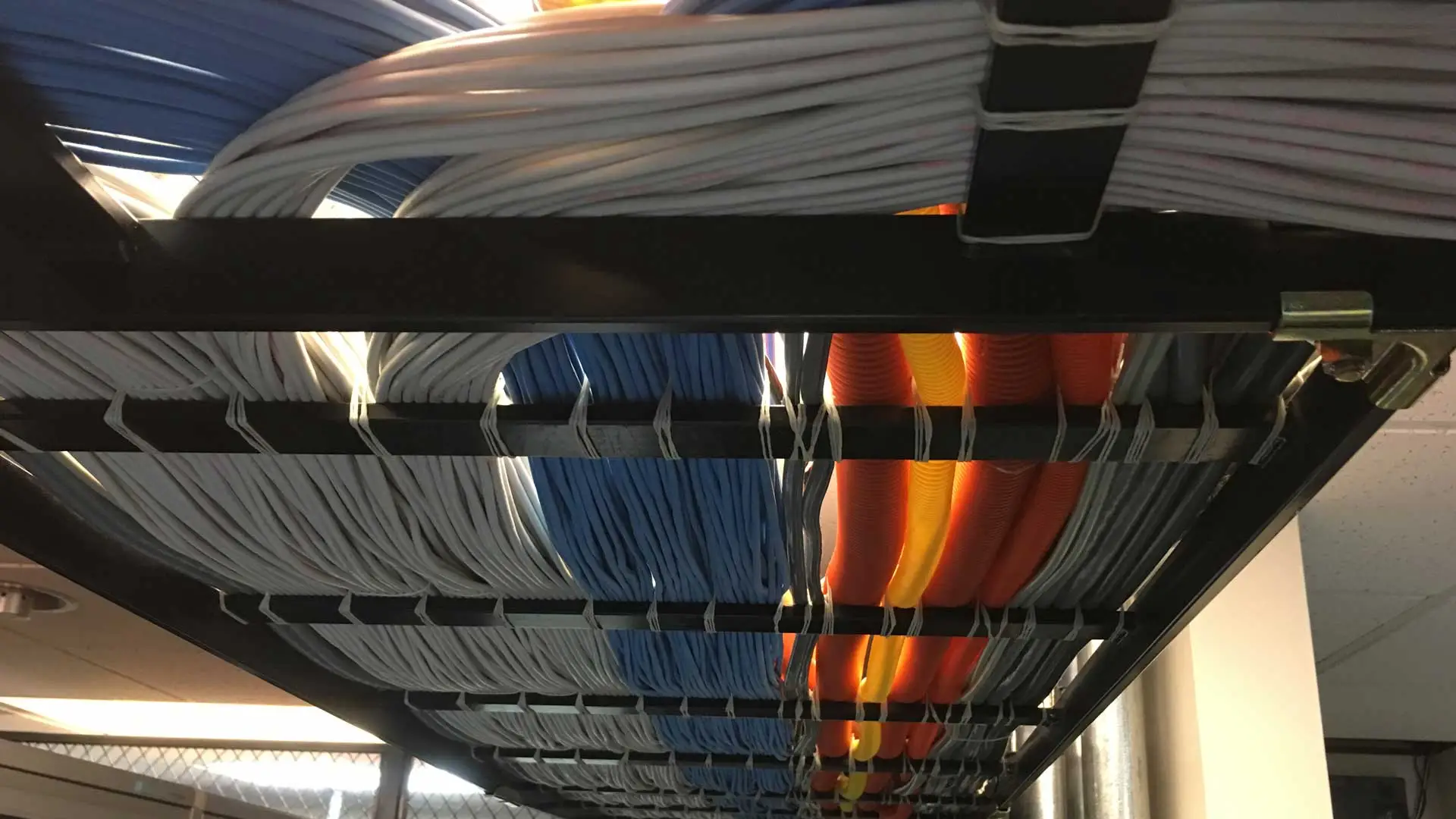
Insight
Check here for information regarding cloud services, colocation, virtual desktop offerings

Check here for information regarding cloud services, colocation, virtual desktop offerings
Connectivity is a crucial factor for anyone that is part of the online world. As such, it is a vital part of the operations of each data center company. There are many network connectivity types out there. The one we will be talking about today is the cross connect.
As one of the connectivity types, you need to know what is a cross connect. This will help you learn if and how you can benefit from it.
Also, the more you know about them and their impact on network performance, the easier it will be for you to pick the right connectivity option for your business.
Cross connects are a network connectivity type that links two separate hardware assests in a data center. The two hardware assets or servers are linked via physical cross connect cables. These cables establish a private network connection between the two.
Also, two servers that are linked using this network connectivity type do not need to use the Internet to be connected.
They can be maintained either by one or across many data centers. Firms use them for many things. One of them is to connect to global networks. This allows them to conduct their business more quickly.
Also, colocation* customers can ask their provider for cross connects. This way, they will set up more reliable, high-performance links with each other in the same data center.
To set up this type of connection ...
From WATTS to AMPS, to VOLTS, to kVA, there are plenty of power ratings out there that each data center company uses to express power usage.
Because kVA is mostly used in the generator industry, many people don’t know about it. Today, we’ll cover what is kVA, what is kVA power, how to calculate kVA, and more.
kVA or kilovolt-amps is a measure of apparent power. A kVA unit is 1,000 volt-amps. It shows the total amount of power that a system uses. When a system is 100% efficient, kVA will be equal to kW.
However, most electrical systems are not 100% efficient. So, only a portion of the apparent power is converted into working output.
kW or kilowatts measure the true amount of the power that is converted into working output. That’s why kW is known as actual or working power.
The power factor (PF) measures the electrical efficiency of the system. If you know the efficiency of the electrical system, you can convert it between kilovolt-amps and kilowatts. The electrical efficiency of a system is expressed as a PF between 0 and 1.
A PF closer to 1 indicates that the kVA is efficiently being converted into working kW. A 100% efficient electrical system has a PF of 1.
Kilovolt-amps show the total amount of power a colocation or any other service provider uses. Kilowatts show the actual power that is converted into output.
The...

No matter the size of your business, you still have IT needs that need to be met. Whether you’re a small business keeping track of a few accounts or a large organization with 500 employees, you have to be able to store your data and host that data somewhere.
When you use in-house data hosting and data storage, you end up incurring additional costs such as an IT person, maintaining equipment and backup, and more. Here are some reasons why your business in Orlando, Space Coast, Tampa, and other areas in Florida should consider using the cloud for data hosting and data storage.
When you host and store your data at your business, you use more equipment that has to continually be updated. You also have to have an employee on-site who has the knowledge to effectively manage your company data and hosting. Using the cloud helps to reduce these costs, as you no longer need to update equipment or pay a full-time employee to handle these issues.
When you have a cloud provider, they can set the software to automatically update or manage the update process for you. This means your in-office staff is freed up to focus on other aspects of your day-to-day operations.

In late 2018, Marriott informed the world that around 500 million of its customers had lost information to cyber thieves from 2014-2018. This data breach was large and went undetected for four years. Their information needed to be more secure and not as easily accessible. Other massive data breaches have affected millions of people and cost companies millions of dollars in lawsuits, all because they had a weakness in their security that hackers were able to exploit. One way to help prevent data breaches is by selecting a secure data center to store your data.
When you're searching for a data center to house your business's critical information, make sure the data center is compliant with your industry. You alone are responsible for ensuring your business data is secure at all times, so it's vital to be discerning when choosing where that data is stored.
If you're in Florida areas such as Orlando, Space Coast, Tampa, or Daytona Beach, here are reasons why you should be searching for a data center that meets compliance standards.
Compliance standards, also referred to as data center security standards, help ensure that data centers are using best practices for data protection. Standards vary between the different types, but there are several types of compliance that data centers can be audited and assessed for to prove that they are secure enough to store various types of ...

When considering a data center, there are many options to think about, but one that should be looked at is whether or not the data center is carrier neutral. A carrier-neutral data center offers multiple options for connectivity, whereas a non-carrier-neutral data center only has one option.
Here are some reasons your business in Orlando, Space Coast, Tampa, and other Florida areas should consider using a carrier-neutral data center for your colocation provider.
Carrier neutrality is very important to a data center customer, as it gives options for blended connectivity. A non-carrier-neutral data center only leaves you with one service option and limited connectivity options. With a carrier-neutral data center, the business gets several advantages over a non-carrier-neutral data center.
Using a carrier-neutral data center has many advantages, including:
